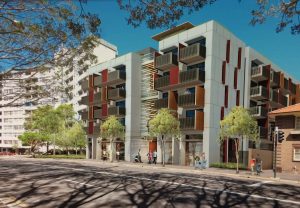The simplicity of Housing First
Housing First is an approach or methodology for assisting homeless people to access permanent housing with support as needed. It is based on the idea that people need a stable and secure home before anything else such as employment, community connections or better health care. A safe home is central to everyone’s lives. So, when someone has complex needs, it seems ludicrous to require them to jump through multiple hoops before they might eventually get into stable, affordable, permanent housing. We don’t ask this of most of our population, why do we continue to ask it of people in poverty who have additional health and support needs?
‘Housing First’ is based on a number of elements. These include:
Housing is provided as quickly as possible for people experiencing chronic long-term homelessness.
People do not have to be assessed as ‘housing ready’ which is a criterion regularly used that requires homeless people to first transition through a support service or temporary housing option and/or to undertake independent living skills training and assessment. Whilst this is a valuable objective of not setting people up to fail in their tenancies, it is not substantiated by evidence.
People are provided with adequate and appropriate support services in their home such as healthcare, training, employment opportunities and social inclusion. Whatever level of ongoing support needed, is provided.
People with alcohol or other drug addictions can access housing. Unlike Housing First, many other housing models require a transitional period in a care environment that may also require a period of abstinence from alcohol and/or other drugs. Most Housing First models do not require this and people will be able to access housing regardless of their substance use issues. In the first instance there will be support to try to manage it better and over the longer term, support to understand it, reduce or even to cease it. There is evidence accumulating that once people are in a stable housing situation they are in a better position to try and tackle their addictions.
Housing First is not Housing Only (that’s called Rapid Re-housing). Housing First simply ensures that people who have experienced long term homelessness are provided with housing. First. It doesn’t mean they are only provided with housing. Some people will have serious and permanent support needs and this should be provided. Some people may just need permanent housing, but short term ‘transitional’ support as they move back into housing. Some people may have no additional needs and just need housing. This approach is often called ‘Rapid Re-Housing’ and it is more cost effective than crisis accommodation then transitional housing and followed eventually by permanent housing.
Benefits of Housing First
Studies of Housing programs around the world reveal that tenants engaged in Housing First arrangements are:
- more likely to stay in their accommodation long term;
- have improved health outcomes;
- higher employment and training success;
- more engaged in the community
compared to more traditional housing programs. Consequently, Housing First programs are more cost effective for governments and service providers.
A study of 225 people in the USA compared the outcomes of those using traditional housing services and those using a Housing First program known as Pathways to Housing. The research found that 88% of those in the Housing First program retained their housing for two years compared to 47% in the other programs (Gulcur et al. 2003).


